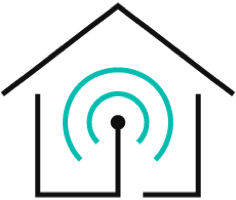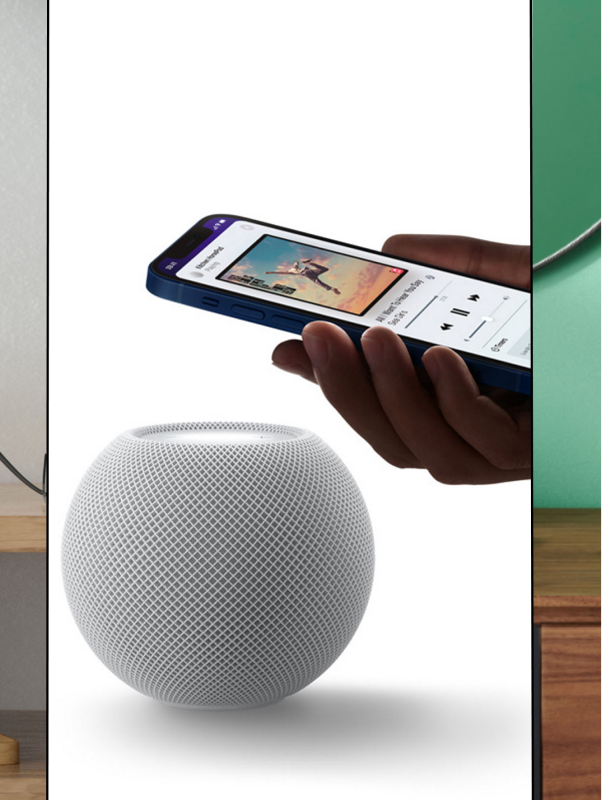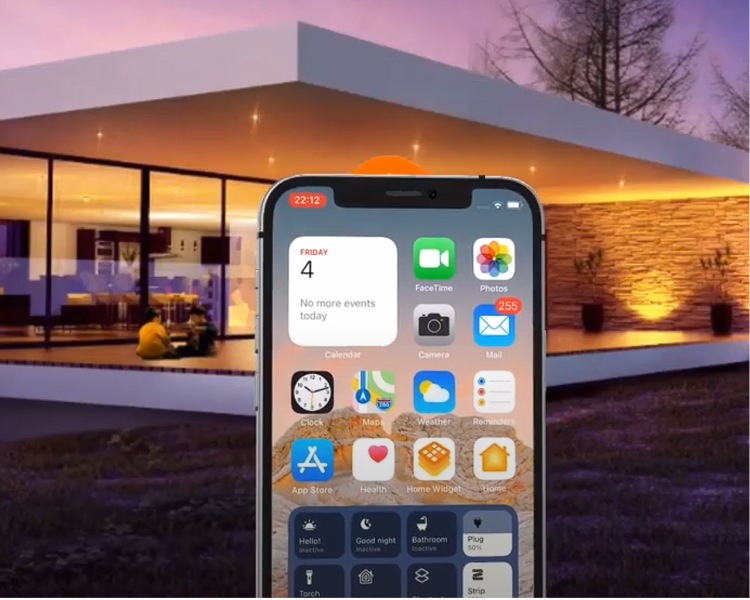Discover HomeKit vs Google Home vs Alexa in this detailed blog. Dive into the comparison to choose the best smart home platform for your home.
Smart home platforms are always evolving. Along with this evolution, new smart home platforms are introduced. Apple HomeKit, Google Home, and Alexa stand out as the titans. It can become hard for users to find the right one according to their requirements. A question arises in their minds, "Which is the superior smart home platform?" To answer that, they must know HomeKit vs Google Home vs Alexa.
Today, we will take an in-depth look at how HomeKit, Google Home, and Alexa differ from each other. We strongly recommend reading till the end to find the perfect fit for your smart home setup.
- What is a smart home platform?
- Comparison of smart home platforms
- Apple HomeKit vs Google Home
- Apple HomeKit vs Amazon Alexa
- Introduction to EVVR Center Lite
- Integrating EVVR Center Lite with Google Assistant and Alexa
What is a smart home platform?
To put it simply, think of a smart home platform as the smart central hub where all your smart devices come together. It can synchronize their actions with other gadgets. Therefore, you can monitor their performance without leaving the comfort of your couch. Plus, a smart home platform lets you control all your smart devices remotely.
Apple HomeKit, Google Home, and Amazon Alexa are the key players in the smart home platform arena. They all have one thing in common - eliminate complexity by providing a unified interface. However, each has its unique strengths and compatibility. You can make a solid decision on choosing the right smart home platform once you are aware of their features.

Comparison of smart home platforms
We are seeing a rapid evolution in smart home technology. In a normal sense, this is good. However, it confuses consumers in choosing the right players in the market: Apple HomeKit, Google Home, and Amazon Alexa.
As a result, it is a good idea to understand their differences to make an informed decision.
Apple HomeKit:
From its name, you may have already guessed that it has seamless integration into the Apple ecosystem. Apple HomeKit offers a user-friendly experience for iOS device owners. Its focus on privacy and security is a standout feature.
HomeKit is compatible with a wide range of devices. Users can control these devices through the Apple Home app or voice commands using Siri. The newest Apple HomeKit lets users check the activity history for all connected devices.
Google Home:
This smart home platform uses the power of Google Assistant to provide a comprehensive smart home experience. It has become a key competitor among all the smart home platforms due to its integration with the Google ecosystem. With this device, users can control devices through voice commands and the Google Home app.
Google Home is compatible with an extensive library of devices. Google has recently redesigned the Google Home app. With this device, streaming is easier now. Plus, users can enjoy a lot more customizable automation. They appreciate its natural language processing capabilities. Overall, Google Home offers flexibility and choice.
Amazon Alexa:
No doubt, this smart home platform is a pioneer in the smart home space. Alexa's strength lies in its extensive skills and third-party integrations. Plus, it offers robust compatibility with a vast array of devices. So, users have more customizable options to enhance their smart home experience.
Amazon Alexa excels in voice recognition technology. It makes interactions more intuitive compared to other smart home platforms. Alexa devices, such as the Echo series, serve as central hubs for controlling various smart home devices. On top of that, Amazon regularly adds new features so that Alexa becomes more conversational and entertaining.
The following table will demonstrate a side-by-side HomeKit vs Google Home vs Alexa.
|
|
Apple HomeKit |
Google Home |
Amazon Alexa |
|
Integration |
Seamless within Apple ecosystem |
Tightly integrated with Google ecosystem |
Broad compatibility with various devices |
|
Privacy and Security |
Emphasis on user privacy and security |
Google's robust security measures |
Strong emphasis on user privacy |
|
Voice Control |
Siri voice commands |
Google Assistant voice commands |
Alexa voice commands |
|
Device Compatibility |
Wide range of supported devices |
Extensive library of compatible devices |
Broad compatibility with third-party devices |
|
User Interface |
Apple Home app |
Google Home app |
Alexa app |
|
Customization |
Limited customization options |
Personalized routines and settings |
Extensive skills and third-party integrations |
|
Natural Language Processing |
Standard |
Advanced |
Excellent |
Apple HomeKit vs Google Home
Often, people search for "HomeKit vs Google Home" or "Google Home vs HomeKit" to pick the right one between these two smart home platforms. With that in mind, we are going to explore the main differences between them.
Integration and Compatibility:
In this case, both Apple HomeKit and Google Home have their strengths. Apple HomeKit is renowned for its compatibility with a wide range of smart devices. So, users can easily build a comprehensive smart home environment with this device.
On the other hand, Google Home, with its interoperability, competes fiercely in the market for the "homekit vs Google Home vs Alexa" segment. Users get flexibility in choosing devices for lighting, heating, security, and so on.
Voice Control:
For any smart home system, voice control is a crucial aspect. Both Apple HomeKit and Google Home excel in this arena. However, speaking of Apple HomeKit vs Google Home in terms of voice, Google Home shines brighter. It is praised for its excellent recognition capabilities.
Ecosystem Lock-In:
The level of commitment required to a specific ecosystem can be a major consideration for users. Apple HomeKit users can deeply integrate into the Apple ecosystem, which may be advantageous for those already using Apple devices.
Conversely, Google Home users experience a seamless connection with other Google services. It offers a cohesive experience for those entrenched in the Google ecosystem. Hence, Google Home vs Apple HomeKit in terms of ecosystem often boils down to individual preferences.
Privacy and Security:
These factors play a crucial role in HomeKit vs Google Home. Apple HomeKit is lauded for its commitment to user privacy. It emphasizes end-to-end encryption and on-device processing. Although Google Home maintains a robust security framework, it faces scrutiny due to its data-driven business model.
Apple HomeKit vs Amazon Alexa
Since you have learned about Apple HomeKit vs Google Home, it will be unfair if you don’t know Apple HomeKit vs Amazon Alexa. We are going to highlight the same factors to differentiate between these two smart home platforms.
Integration and Compatibility:
Both Apple HomeKit and Amazon Alexa excel in their ability to integrate with numerous smart devices. Apple HomeKit works best within the Apple ecosystem. In terms of compatibility with third-party devices, Amazon Alexa takes the top spot. It is well known for having an extensive library of compatible devices.
Voice Control:
Undoubtedly, voice control is a vital feature on smart home platforms. And both Apple HomeKit and Amazon Alexa offer robust solutions. But Amazon Alex is more popular on the market when it comes to voice control. It features more natural language processing. So, users will have a better conversation with Alexa than with HomeKit.
Ecosystem Lock-In:
Amazon Alexa vs Homekit often involves considering the level of ecosystem lock-in. Apple HomeKit users enjoy a seamless connection with other Apple devices. On the other hand, Amazon Alexa works with a broader range of devices and services. So, users benefit from the platform's independence.
Privacy and Security:
Apple HomeKit is committed to user privacy. For that, it uses advanced technologies like end-to-end encryption and on-device processing. Since Amazon Alexa supports a variety of devices, it may lack quality in terms of security. So, speaking of Apple HomeKit vs Amazon Alexa regarding security, HomeKit might be a better solution.
Introduction to EVVR Center Lite
EVVR Center Lite is a cutting-edge smart home hub. It prioritizes user security and seamless control. Through local data storage, it enhances security by storing data locally rather than in the cloud. It keeps user data safe and inaccessible to unauthorized individuals by employing peer-to-peer data encryption.
Users can add multiple control hubs with the EVVR Center Lite. So, they can expand their smart home network. Plus, it creates a stable single-star network even with multiple controllers. Users can easily add new devices through Wi-Fi, Z-Wave Plus, and Zigbee 3.0.
EVVR Center Lite comes with a dedicated EVVR app. From a user-friendly interface, users can easily manage new smart home accessories with this app. Moreover, users can set automation rules for these accessories. To be honest, they can not only enjoy a streamlined configuration but also save on electricity bills through efficient automation rules.
On top of that, EVVR Center Lite allows connected devices to communicate without an internet connection. This is how it stands out by keeping your smart home always functional and secure.
Integrating EVVR Center Lite with Google Assistant and Alexa
You might have learned about Apple HomeKit vs Google Home and Apple HomeKit vs Alexa. Perhaps it will become easier for you to choose the right smart home platform now. On the other hand, if you are already using one and are not satisfied with the performance, then you can integrate EVVR Center Lite with it.
For the following benefits, you should definitely think about integrating EVVR Center Lite with your smart home platform.
● Enhanced Compatibility:
EVVR Center Lite's integration with both Google Assistant and Alexa broadens the compatibility spectrum. It gives users the flexibility to choose their preferred voice assistant. This ensures that, regardless of your preferred ecosystem, EVVR Center Lite can become a central hub for your smart home control.
● Multi-Assistant Support:
With EVVR Center Lite, you can choose the voice assistant that best suits your needs. It supports multi-assistant functionality like Google Assistant or Alexa. What's more, you can even use both simultaneously. Thus, you will have limitless control over your smart home devices.
● Voice Control with Google Assistant:
By integrating with Google Assistant, EVVR Center Lite allows users to control their smart home devices. They just need to use natural voice commands. Google Assistant communicates with EVVR Center Lite to execute your commands for any activity. This can be for adjusting the thermostat, turning off lights, or locking doors.
● Voice Control with Alexa:
Similarly, Alexa users can utilize the power of voice control by linking to EVVR Center Lite. With a simple setup, you can ask Alexa to perform various tasks. Just like Google Assistant, Alexa also has seamless integration with EVVR Center Lite. Therefore, you can ask Alexa to dim the lights, set the temperature, or check security cameras.
● Simple Setup Process:
Without any technical knowledge, you can set up EVVR Center Lite with Google Assistant and Alexa. Users can easily link to the EVVR Center Lite hub using the respective apps or voice command devices. They just need to follow the on-screen instructions. The connection is straightforward and hassle-free.
● Automation and Customization:
You can extend the capabilities of automation by integrating EVVR Center Lite with Google Assistant and Alexa. Doing so will allow you to create custom routines and commands.
So, you can maintain a more personalized and efficient smart home experience. Whether it is a "Good Morning" routine or an "Away" command, your smart home will respond to your voice instantly.
In Closing
Ultimately, even after discovering HomeKit vs Google Home vs Alexa, the choice will come down to your preferences and ecosystem allegiance. Each platform offers a unique experience tailored to different preferences and needs. As a bonus tip - HomeKit can be a strong contender if you value a tightly regulated and streamlined experience within the Apple ecosystem.
If you plan to extend the features of your Apple HomeKit or Amazon Alexa, you should seriously consider installing EVVR Center Lite. Reach out to us to know how EVVR products can enhance the overall functionality of your smart home.















